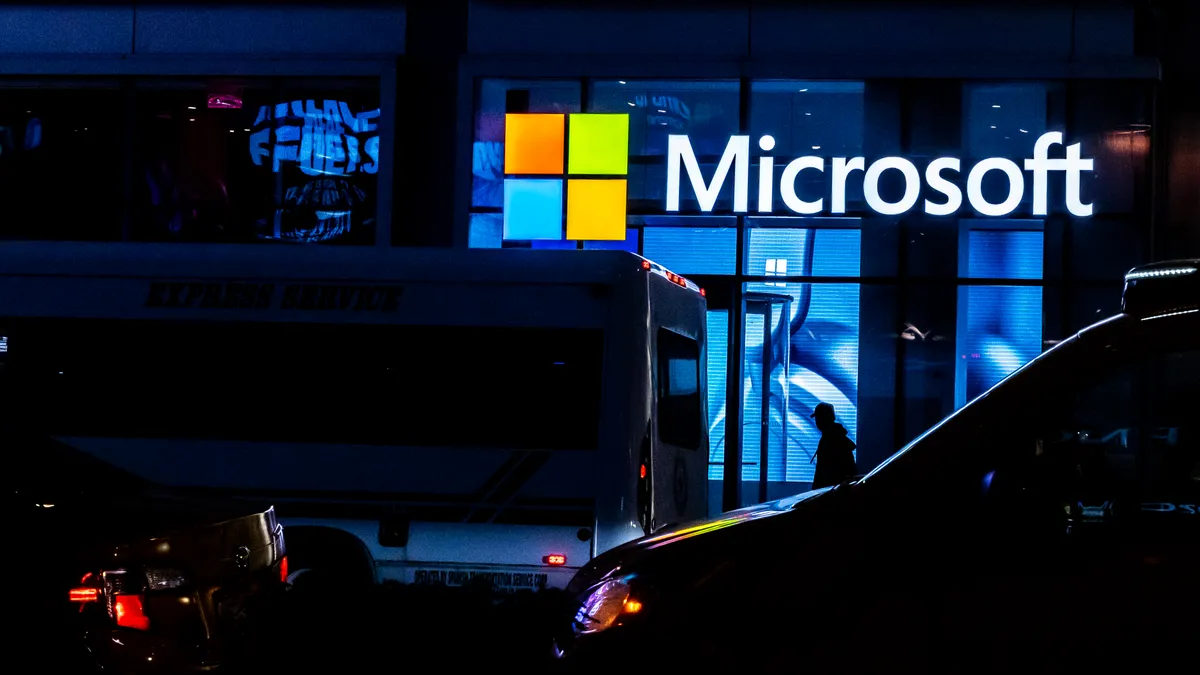David Balto is a former antitrust lawyer with DOJ and the FTC. He is in private practice at David A. Balto Law Offices. Views are the author’s own.
When Federal Trade Commission Chair Lina Khan went on The Daily Show in April, she said "we're reeling from the consequences” of taking “a hands-off approach" to Web 2.0, while noting that today "there's no AI exemption from the laws on the books.”

The FTC must make that true by using all of its enforcement and research tools to prevent anticompetitive activity in AI.
Fortunately, earlier this year, the FTC launched a 6(b) inquiry into the relationships between the leading artificial intelligence and cloud service companies to better understand how their web of partnerships and investments will impact competition and innovation.
The inquiry is a welcome first step to protecting the competitive landscape in two of the fastest-developing technological markets in the world. But study alone will be inadequate, especially when AI poses the risk of radically changing markets. The FTC must look at all of its enforcement tools in scrutinizing Microsoft’s recent actions, which risk letting the world’s most valuable company create an “AI walled garden.”
Microsoft stands alone in the creative ways it employs to snap up AI talent and intellectual property for its vertically integrated AI stack while deftly avoiding antitrust scrutiny. The company’s $13 billion investment in OpenAI locked the AI darling into Azure and gave Microsoft exclusive access to OpenAI’s IP to use and license. While not an acquisition, the investment, in the words of CEO Satya Nadella, placed Microsoft “below [OpenAI], above them, and around them,” and enabled Microsoft to be “very self-sufficient” in AI.
With Inflection AI, Microsoft took a blunter approach. Under Nadella’s leadership, Microsoft simply hired two of Inflection’s three executives and a broad swath of the company’s AI researchers and developers. Inflection has been left a husk of its former self and pivoted to a new line of business.
In both cases, Microsoft’s intent and outcome were clear: Absorb up entire companies’ worth of talent and IP and then neutralize, or at least co-opt, competitors to its CoPilot AI tool, all while avoiding antitrust and merger and acquisition scrutiny. Microsoft has a well-worn playbook of using strength in one market to capture market share in another. Microsoft has used restrictive licensing practices and leveraged its dominance in on-premise infrastructure to lock customers into the cloud. Now, it is bringing these same tactics to AI and can leverage its massive Office 365 and Azure customer base to drive the adoption of Copilot, which it ties to its license agreements. No doubt every company in tech is watching to see if and how the FTC responds.
What can the FTC do? A number of things. The agency is perhaps best known for its trust-busting lawsuits, but antitrust investigations require significant time and resources — and can take years to adjudicate and resolve. Official investigations into Microsoft’s AI non-acquisition acquisitions will likely be necessary, but the FTC can do more than sit back and watch in the meantime.
The Commission was originally established to oversee not only antitrust regulation, but also non-enforcement actions like studies and policy statements that would encourage competition and protect consumers. The FTC has deemphasized these aspects of its mandate since the days of the Reagan administration. But Chair Khan has proven to be a bit of a throwback when it comes to vigorously using the non-enforcement actions available to the FTC. And now is the perfect time to use them.
This approach is clearly in Chair Khan’s playbook. Shortly before her appointment in 2021, the FTC issued a report on “rebate walls,” an anticompetitive tactic whereby drug manufacturers used rebates to keep lower-priced drugs off the market. The report was a precursor to the 2022 inquiry into the business practices of pharmacy benefit managers — the middlemen hired to negotiate these rebates with drug manufacturers — where the FTC issued a policy statement to explain the agency’s enforcement policy and the legal authorities that apply to these practices. Beyond the inquiry, Khan forcefully and publicly made the case while speaking at the White House to government and industry leaders about the steps the FTC was taking to bring down drug costs and promote competition. We need this same three-pronged approach of regulation, policy statements, and studies now in the AI and cloud markets.
As the FTC continues its inquiry into investments and partnerships in AI, it must also adopt the active and vocal use of its non-enforcement powers to drive public awareness, legislative attention, and industry actions to bring greater competition and fairness to the cloud and AI markets. Greater innovation, access, and lower costs for consumers and industry will result. The policies and precedents we set today will set the competitive balance of these markets for generations to come.










